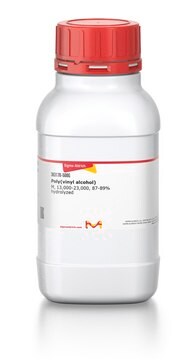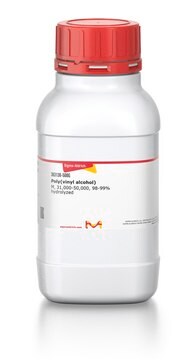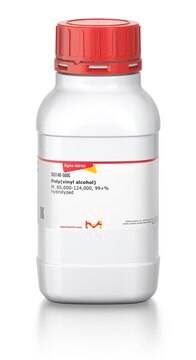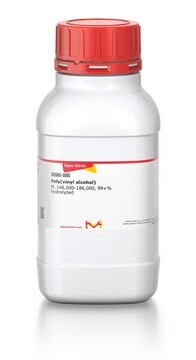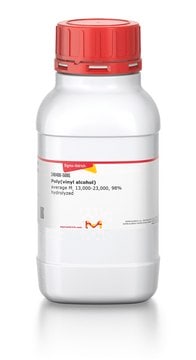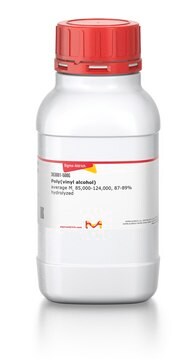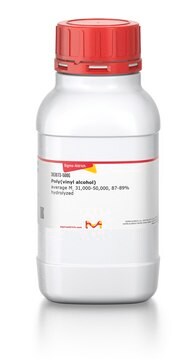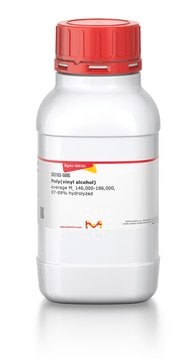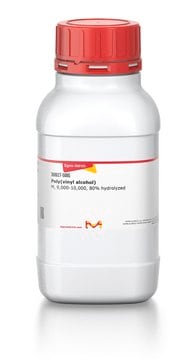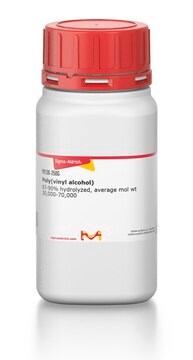563900
Poly(vinyl alcohol)
average Mw 130,000, 99+% hydrolyzed
Synonym(s):
PVA
Sign Into View Organizational & Contract Pricing
All Photos(2)
About This Item
Linear Formula:
[-CH2CHOH-]n
CAS Number:
MDL number:
UNSPSC Code:
12352104
NACRES:
NA.23
Recommended Products
Quality Level
form
powder or crystals
mol wt
average Mw 130,000
falling ball
56-68 cP, 4 % in H2O(20 °C)(lit.)
InChI
1S/C2H4O/c1-2-3/h2-3H,1H2
InChI key
IMROMDMJAWUWLK-UHFFFAOYSA-N
Looking for similar products? Visit Product Comparison Guide
Related Categories
General description
Poly(vinyl alcohol) (PVA) is a vinyl based water soluble polymer that can be used as a non-ionic surface active agent. It can also be used as a biodegradable polymer and can be incorporated in adhesives, coatings, textiles, ceramics and cosmetics. Its properties include good transparency, chemical resistance, toughness and anti-electrostatic properties.
Application
PVA can be used in a variety of applications such as:
- a blended membrane for separation of gases
- a proton conducting membrane for the development of fuel cells
- hydrogels in tissue engineering
Storage Class Code
11 - Combustible Solids
WGK
WGK 1
Flash Point(F)
No data available
Flash Point(C)
No data available
Personal Protective Equipment
dust mask type N95 (US), Eyeshields, Gloves
Choose from one of the most recent versions:
Already Own This Product?
Find documentation for the products that you have recently purchased in the Document Library.
Customers Also Viewed
Effect of functionalized silica particles on cross-linked poly (vinyl alcohol) proton conducting membranes
Navarra MA, et al.
J. Appl. Electrochem., 38(7), 931-938 (2008)
CO2 separation using thermally stable crosslinked poly (vinyl alcohol) membrane blended with polyvinylpyrrolidone/polyethyleneimine/tetraethylenepentamine
Mondal A and Mandal B
Journal of Membrane Science , 460(6), 126-138 (2014)
Plastics Materials, 386-397 (1999)
Cross-linked poly (vinyl alcohol)/sulfonated nanoporous silica hybrid membranes for proton exchange membrane fuel cell
Beydaghi H, et al.
Journal of Nanostructure in Chemistry, 4(2), 97-97 (2014)
Compostable Polymer Properties and Packaging Applications
Plastic Films in Food Packaging, 217-248 (2013)
Our team of scientists has experience in all areas of research including Life Science, Material Science, Chemical Synthesis, Chromatography, Analytical and many others.
Contact Technical Service
